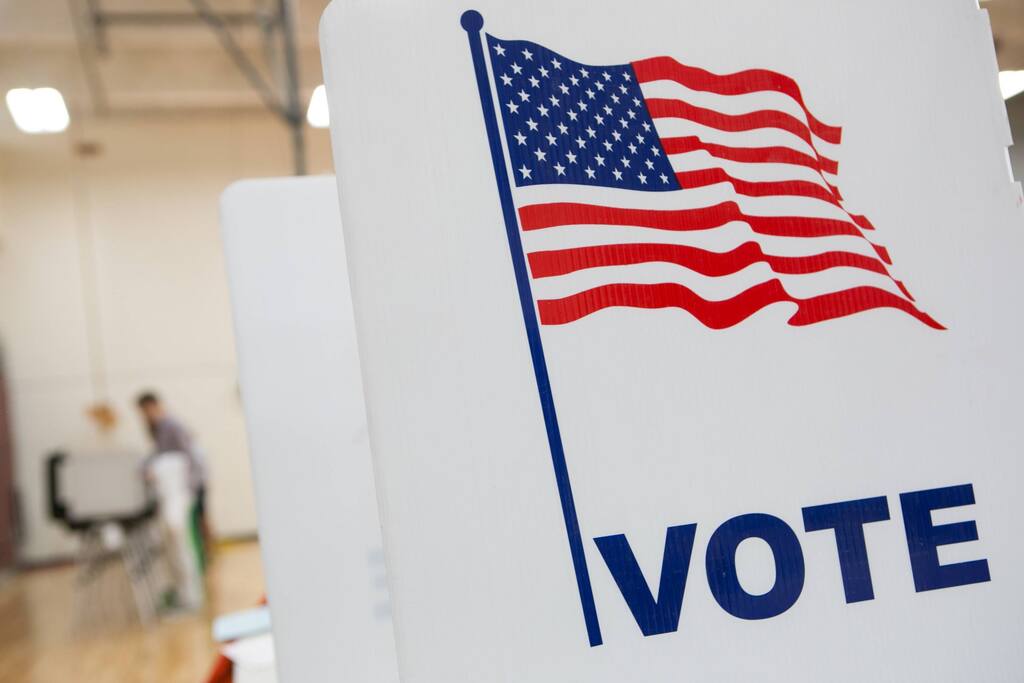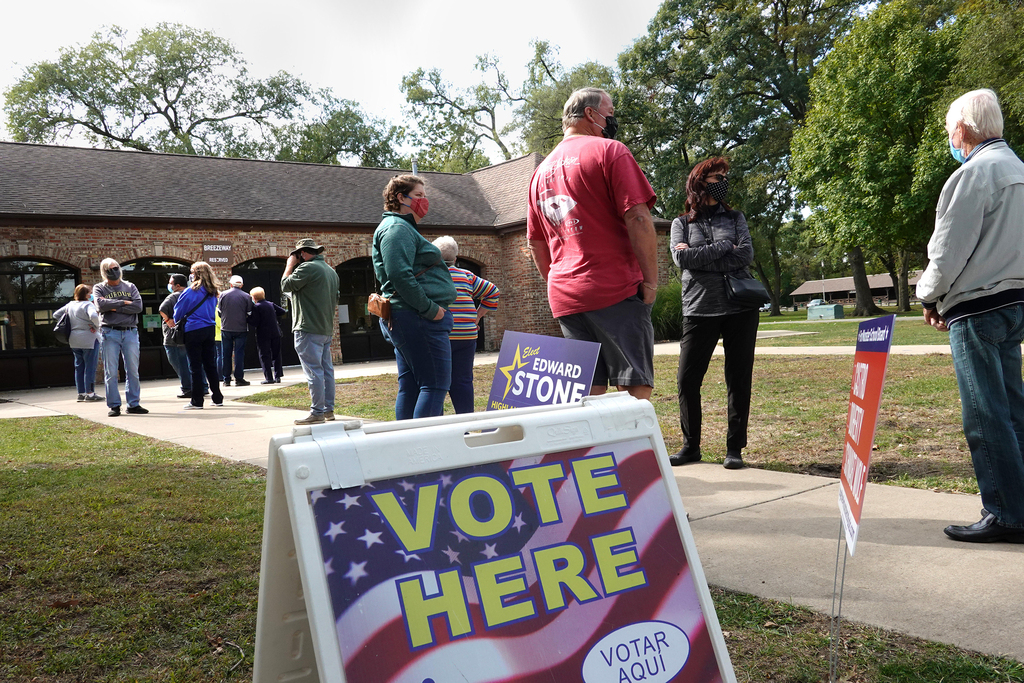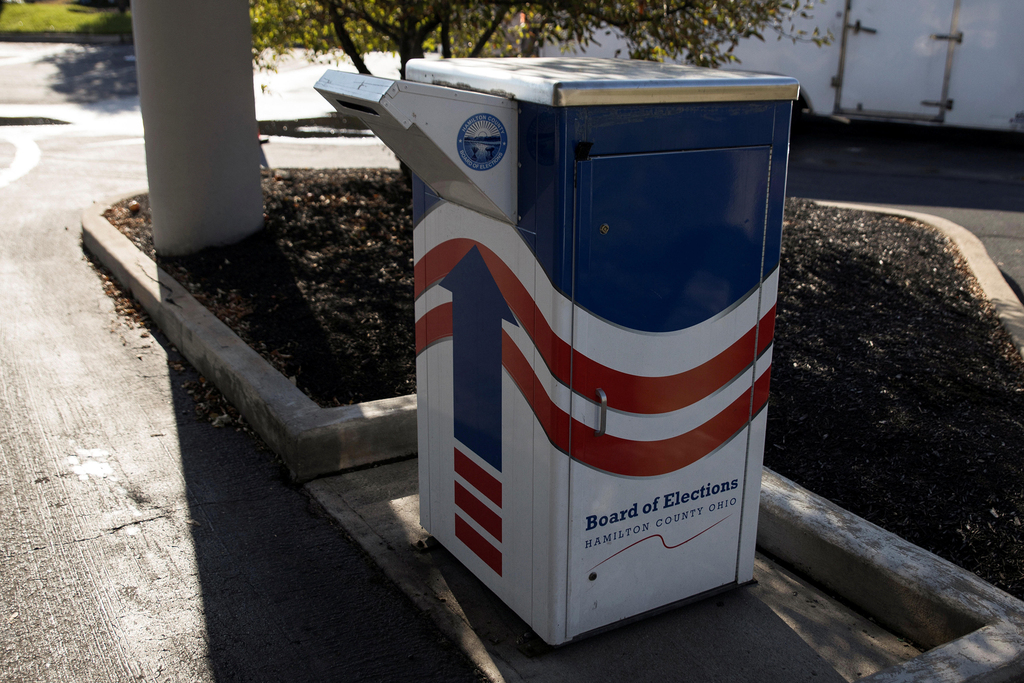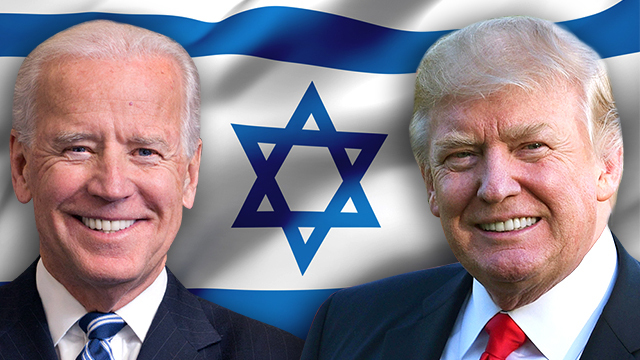In the coming days, 26-year-old Yardena Hazony will collect her ballot, mark Donald Trump on it as her choice for president and mail it back to the election board in Pennsylvania.
She will be voting in the U.S. elections for the first time, casting her vote from Jerusalem.
"We must show gratitude to the president for all he has done for Israel," Hazony says, and she is not alone.
According to the Federal Voting Assistance Program, in 2018 no less than 188,499 Israelis who hold American citizenship were eligible to vote. This was the third largest community of eligible voters outside the United States, preceded by only Canada and the U.K.
But this time, this historic referendum will be about the suitability to the highest office of one of the most controversial presidents in American history, and many here feel their vote carries more than the usual weight.
"I am a Democrat and come from a Democrat family and have become increasingly active on the Democratic Party in Israel social media platforms," says 61-year-old Evan Kent from Jerusalem, who moved to Israel from California seven years ago.
His ballot has already been mailed and on it is his choice of Joe Biden for president.
During the Democratic primaries earlier this year, Kent did not initially support Biden, but changed his opinion after the contentious presidential debate late last month.
"Biden has shown he has a conscience, which is not something you can say about the current president," Kent says.
In previous years, few Israeli-Americans participated in the elections, with just 6.9% voting in 2016 and a tiny 1.8% in in 2018, the Federal Voting Assistance Program says.
These low figures are not unique to Israel.
Only 4.7% of Americans living outside the U.S. participated in the 2018 elections and only 6.8% of them voted in 2016, in part at least because of the complex bureaucracy involved in voting by absentee ballot.
7 View gallery
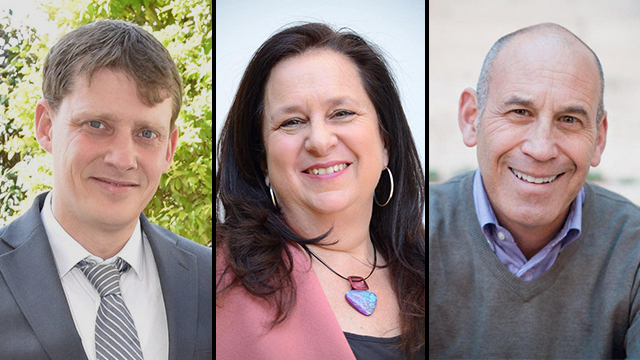

L-R: David Weiner, Elana Sztokman and Evan Kent are voting in the 2020 U.S. elections
(Photos: Efrat Shporker Poplinger)
While U.S. law allows eligible voters to cast their ballots by post, fax or messenger service, many must first go through a grueling process that includes filling in forms and meet strict deadlines.
FVAP reports that 37% of those who applied to vote from abroad in 2018 eventually gave up on the idea because the process was too cumbersome and 26% reported they had received their forms too late.
Some of the Israelis who were adamant that their votes be counted found creative ways to bypass some of the bureaucracy.
David Weiner, 39, who moved to Israel 10 years ago plans to vote for President Donald Trump in Florida. He is giving his completed ballot to a friend who will be travelling to the U.S. and can post the envelope from there.
"It will arrive much faster," he says.
Kent, who is a teacher in Jerusalem, also wanted to expedite the process and enlisted his sister's help.
"I downloaded the PDF form and faxed it to my sister to mail it in for me," he says.
Others who have relied on the postal service or courier companies such as DHL worry their votes may arrive too late to be counted.
Voting from outside the U.S. borders is complex because of the different laws in each of the 50 states, and eligible voters such as those in Israel have to first decipher the specific law that applies in their home state.
New York, for example, announced that for this election cycle voter registration must be completed before October 20, while in Ohio registration ended two weeks earlier.
Because of the electoral college system in America, which awards a different number of electoral votes for each state, some votes could be especially significant. The candidate who reaches 270 electoral votes out of the 538 available is the winner.
States like Florida (29 electoral college votes), Pennsylvania (20 electoral college votes) and Ohio (18 electoral college votes) are considered swing states because they do not consistently vote for one party or another. In those states, a few hundred votes can sway the results of the whole election.
In 2000, just 537 votes in Florida determined the final result that seated President George W. Bush, when that state gave the Republican nominee its electoral college votes.
Hazony has been canvassing her family to vote for the president in an effort to ensure Pennsylvania's vital electoral votes land in his column. She concedes that Trump's style is not her cup of tea but supports his policies.
"What he has done has made America stronger," she says. "He has been trying to bring the country out of foreign conflicts and has worked to bring industry back from China."
Weiner backs the current administration because of its policies towards Israel.
"The U.S. has great impact on life here, so it is important that I and anyone else who can votes to support Trump."
7 View gallery
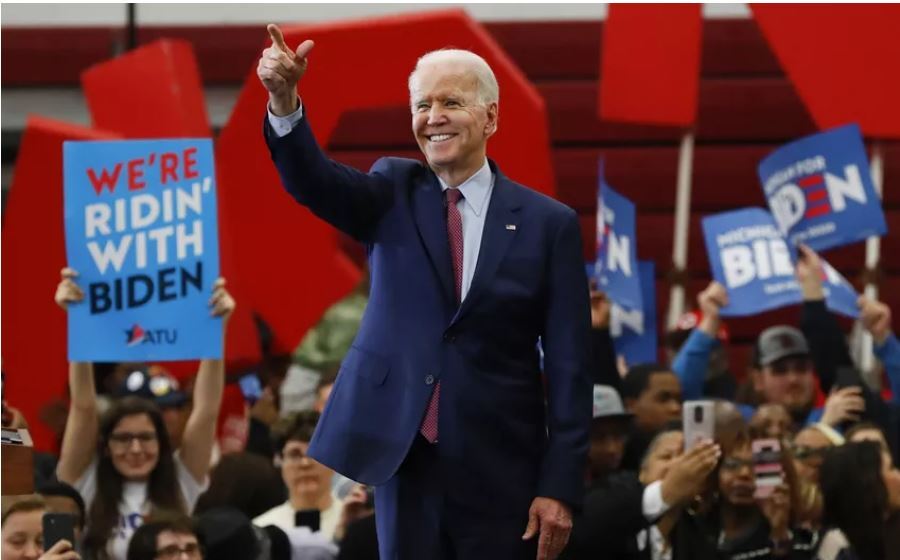

Democratic presidential nominee Joe Biden campaigning before the start of the pandemic
(Photo: AP)
Democratic voters in Israel are well-aware of Joe Biden's lead in the polls but the 2016 election and Hillary Clinton's loss are vivid in their minds.
"When Hillary Clinton won the Democratic primary, I danced in my kitchen because I thought things would finally improve for women," says 60-year-old Elana Sztokman from Modi'in, who had moved to Israel 27 years ago.
"Losing to Trump was crushing because it meant America was not prepared to put a woman in the White House and opted instead for an inexperienced, narcissist with no real vision. It depressed me," she says.
Four years later, Sztokman is taking no chances.
Though her vote will be counted in New York, which historically votes Democrat and will surely give its 29 electoral college votes to Biden, she decided she would exercise her right to vote and convince her daughter to do the same.
"Biden is a good man and leader and has a vision to unite the country," she says. "He treats people well and does not only see half of the population, the half that likes him."
She says that she is very aware a slim majority may not be enough for Biden to win, after Trump expressly said he may not accept the outcome of the election.
"The Democrats better win a decisive victory," she says.
"Biden is now in the lead and in a normal election year he would be elected, but this is not a normal year and I am afraid that if Trump loses, he will refuse to leave office."
Judith Robin Golub, who has for the past 50 years divided her life between Israel and the United States, says she is also scarred by the 2016 elections and is fearful of another Democratic loss.
"I won't relax until the results of the election are known," she says. "I think we have a chance and the polls show we are ahead, but we don't know how the swing states will vote."
Judith says she was far from enthusiastic about Biden, but believes the important thing is to remove Trump from office. She has already mailed in her ballot and received confirmation that it has arrived and will be counted.
"I don’t want to have to say to myself that I did not do whatever possible to ensure a Biden win," she says.
It is impossible to truly know to which candidate votes cast from Israel are going, although observers believe Israelis will mainly vote for the incumbent, not least because many are religious and tend to vote for conservative causes and candidates.
iVoteIsrael, an organization that has been actively encouraging Israelis with American citizenship to vote, claims that in 2012, 85% of Israelis participating in the U.S. elections voted for Republican candidate Mitt Romney and only 25% supported Barak Obama, while in 2016, 59% voted for Trump and 44% for Clinton.
The organization claims to be apolitical but has been known to have close ties with Israeli right-wing groups and the Republican Party.
Asked whether it is morally just to vote in the U.S. elections while living in Israel, all those interviewed said that since they pay taxes to the U.S. government, they absolutely have the right to vote.
"I pay taxes like every other American and the IRA monitors my finances in Israel," says David Weiner, said adding that as long as he has a financial relationship with the federal government he will continue to cast his vote, a sentiment shared by others on the other side of the political spectrum.
"I have a home in the U.S. and pay taxes there," Evan Kent says. "I am proud of both my identities and both Israel and the United States allow me to participate in the elections."
Elana Sztokman agrees: "As long as they want my taxes, I should be able to vote."
But Yardena Hazony admits she had doubts about the fairness of her participation in the elections because she does not live in the U.S. and is an Israeli, but has pushed those thoughts out of her mind now that Trump may lose.
She concedes that her motives were purely political.
"Under Trump we have a peace deals, " she says. "It proves that given the right opportunity these things can happen. We must all fulfill our civic duty."


